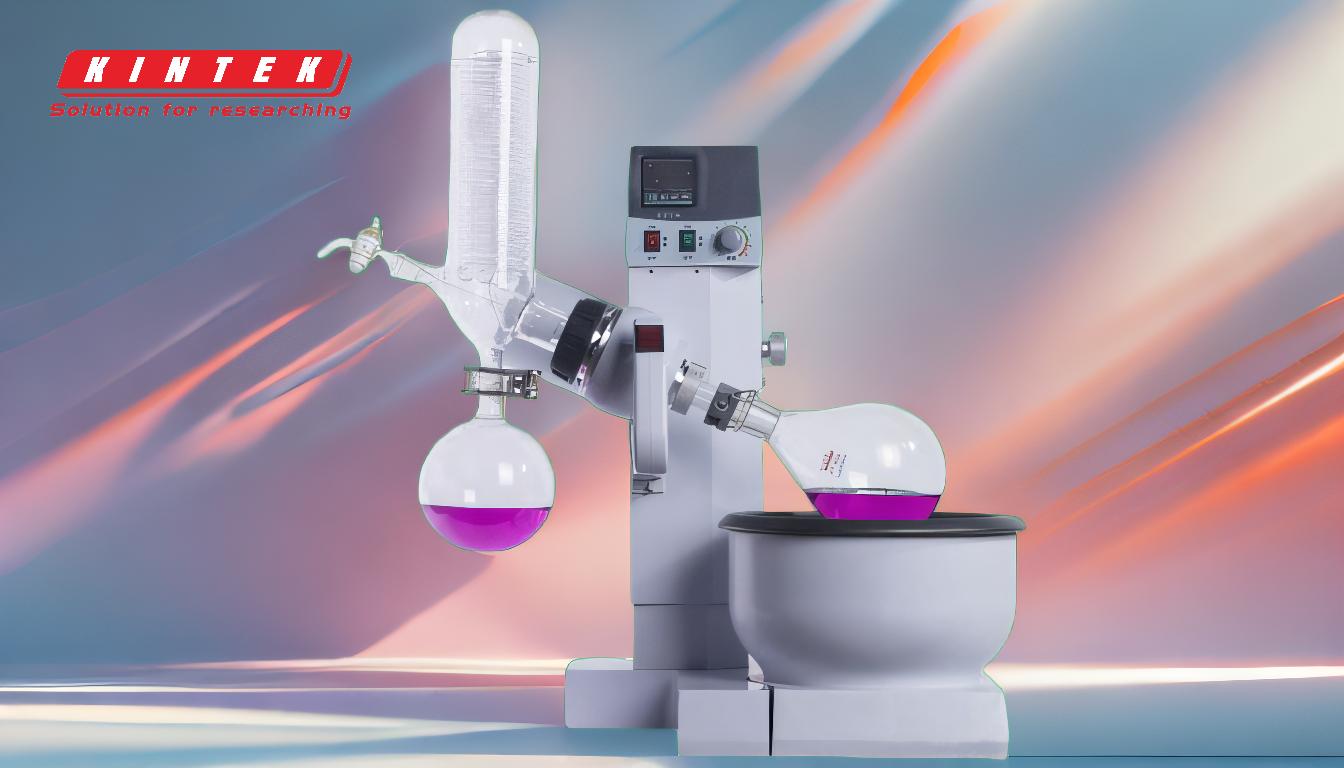The cost of a rotary evaporator vacuum pump varies significantly depending on the type, specifications, and features required. Generally, diaphragm pumps, which are preferred for their oil-free operation and chemical compatibility, can range from $500 to $3,000 or more. Factors influencing the price include the pump's flow rate, vacuum depth, solvent recovery options, and compatibility with specific solvents. Additionally, the size of the evaporation flask, the heating bath temperature, and the desired vacuum control method also play a role in determining the appropriate pump and its cost. For precise pricing, it is essential to consider the specific application requirements and consult with suppliers or manufacturers.
Key Points Explained:

-
Types of Vacuum Pumps for Rotary Evaporators:
- Diaphragm Pumps: These are the most commonly used for rotary evaporators due to their oil-free operation, which prevents contamination and ensures chemical compatibility. They are ideal for handling solvents and wet vapors.
- Oil-Based Pumps: These are less common in modern setups due to the risk of oil contamination and the need for regular maintenance. However, they may still be used in specific applications where high vacuum levels are required.
-
Cost Range:
- Basic Models: Entry-level diaphragm pumps typically cost between $500 and $1,000. These are suitable for small-scale applications and standard solvents.
- Mid-Range Models: Pumps with enhanced features such as higher flow rates, better vacuum depth, and solvent recovery options can cost between $1,000 and $2,000.
- High-End Models: Advanced pumps with features like adjustable vacuum control, high chemical resistance, and large capacity can cost upwards of $2,000, sometimes reaching $3,000 or more.
-
Factors Influencing Cost:
- Flow Rate: The pump's ability to handle the volume of the rotary evaporator system affects the price. Higher flow rates are more expensive.
- Vacuum Depth: Pumps capable of achieving deeper vacuum levels (measured in mm Hg or mbar) are generally more costly.
- Chemical Compatibility: Pumps designed to handle corrosive or hazardous solvents often come at a premium due to the materials and technology required.
- Solvent Recovery Options: Pumps with integrated solvent recovery systems, which allow for the collection and reuse of solvents, add to the overall cost.
- Vacuum Control: Adjustable vacuum control features, which allow for precise regulation of vacuum levels, can also increase the price.
-
Application-Specific Considerations:
- Sample Sensitivity: For sensitive samples, such as those requiring acid-resistant systems, specialized pumps may be necessary, adding to the cost.
- Flask Size: Larger evaporation flasks require pumps with higher flow rates and capacities, which are more expensive.
- Temperature: The heating bath temperature can influence the choice of pump, as some materials and designs are better suited to handle higher temperatures.
-
Additional Costs:
- Maintenance: While diaphragm pumps are generally low-maintenance, some models may require periodic servicing or part replacements, which should be factored into the total cost of ownership.
- Accessories: Additional components such as vacuum controllers, solvent traps, and tubing can also add to the overall expense.
-
Supplier and Manufacturer Considerations:
- Brand Reputation: Established brands with a history of reliability and performance may charge a premium for their products.
- Warranty and Support: Pumps with longer warranties or better customer support services may come at a higher initial cost but can provide long-term value.
In summary, the cost of a rotary evaporator vacuum pump is influenced by a variety of factors, including the type of pump, its specifications, and the specific requirements of the application. By carefully considering these factors, you can select a pump that offers the best balance of performance and cost for your needs.
Summary Table:
| Factor | Details |
|---|---|
| Types of Pumps | Diaphragm (oil-free, $500–$3,000) vs. Oil-Based (less common, maintenance) |
| Cost Range | Basic ($500–$1,000), Mid-Range ($1,000–$2,000), High-End ($2,000–$3,000+) |
| Key Cost Factors | Flow rate, vacuum depth, chemical compatibility, solvent recovery options |
| Application Factors | Sample sensitivity, flask size, heating bath temperature |
| Additional Costs | Maintenance, accessories (vacuum controllers, solvent traps, tubing) |
| Supplier Considerations | Brand reputation, warranty, and customer support |
Ready to find the perfect vacuum pump for your rotary evaporator? Contact us today for expert guidance!









